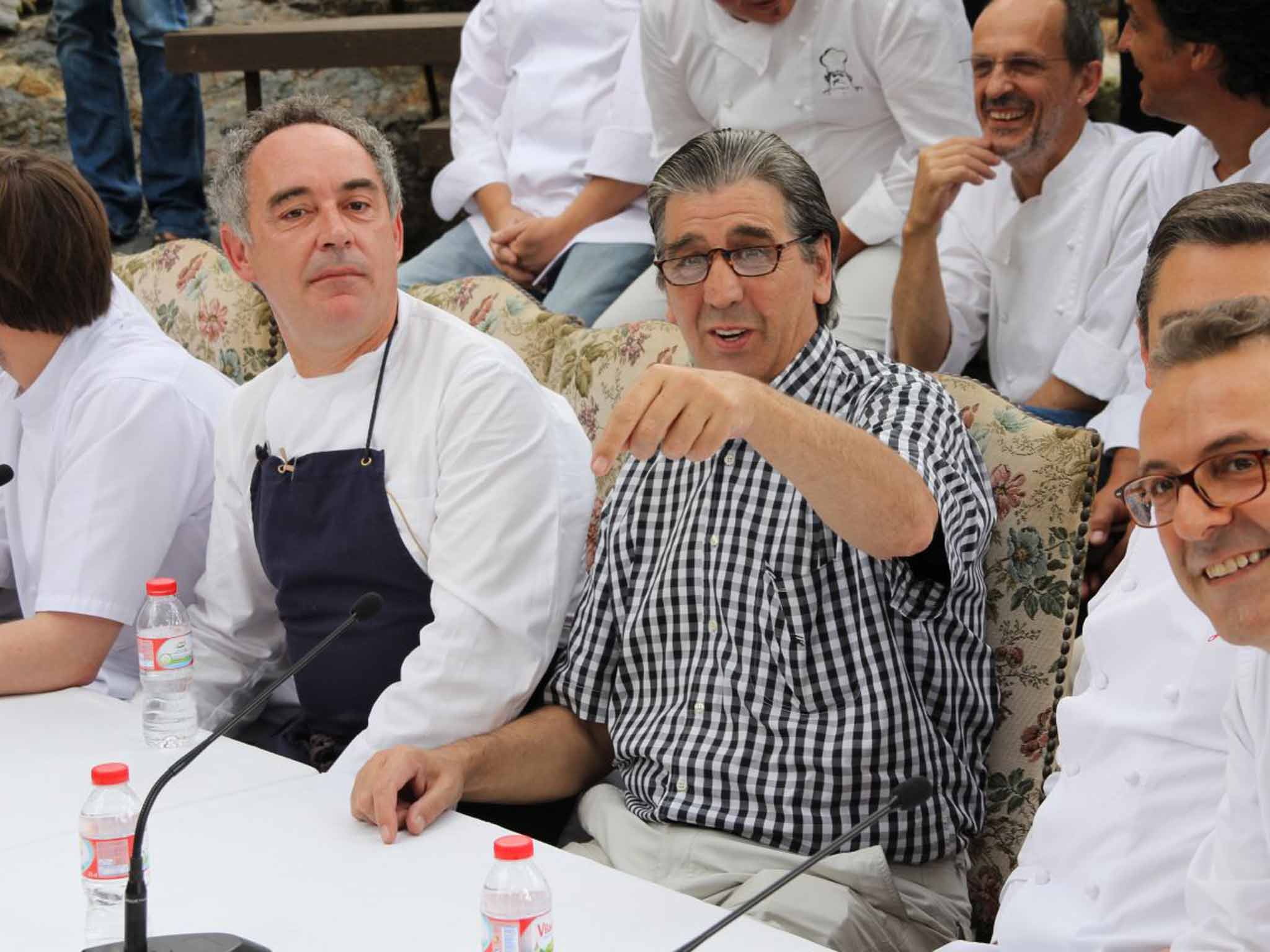Juli Soler: Restaurateur who discovered Ferran Adria, with whom he founded the acclaimed Catalan establishment, El Bulli
In the 1970s he ran a record shop and started a discotheque, using tips from waiting jobs to go to London to buy Rolling Stones albums banned by Franco

Juli Soler was probably the most significant restaurateur of our times, because he discovered and promoted the most original chef of the early 21st century, Ferran Adria, then created their restaurant in Spain, El Bulli, and fostered the culinary movement that grew out of it. El Bulli was a simple beachside joint, said Richard Hamilton, the late "father of British Pop Art" who frequented it from its humble beginnings to its apogee of being named as the world's best restaurant five times in the 2000s. The accolade was mere public relations hype, but the playful, madcap eatery actually deserved it.
It began in 1961, when a German, Dr Hans Schilling, and his wife, Marketta, secured permission to build a mini-golf resort on land in Roses, a beach area about 100 miles north of Barcelona. In 1963 they added a bar that evolved into a simple restaurant. By the mid-'70s it had a French chef and a Michelin star. Soler was then in his mid-20s. He was from Terrassa, just north-west of Barcelona where his father had opened an unpretentious hotel.
Soler was mad about rock music. In the early 1970s he ran a record shop and with a friend started up a discotheque, using tips from waiting jobs to go to London to buy the Rolling Stones albums banned by the Franco regime. In 1980 he met Marketta Schilling, who interviewed him for a job on Christmas Day. When he looked at and tasted the proposed menus for the New Year, he realised that this was a different foodie ball game. At Dr Schilling's suggestion he took a two-month gastronomic tour, doing work "stages" in Michelin-starred restaurants in France, Belgium and Germany.
When he returned as Hacienda El Bulli's manager in March 1981, he hired Jean-Paul Viney, a progressive young French chef. But he was astonished to learn that Michelin had made an error. Believing that the restaurant had closed and that the French chef had left, they had removed it from the Guide altogether. Soler deleted the hated "Hacienda" from the name, and his protests, plus Viney's cooking, saw the star returned the next year, with a second to follow the year after.
In 1984 the French chef really did leave, and Soler spotted a junior chef, Adria, who had been making pizza and not much else. "After a memorable night of drunkenness," Adria told El Pais last week, comparing Soler to Groucho Marx, Soler decided to send him on a tour of the European gastronomic scene. His judgment was vindicated; within 18 months Adria rose to be head chef.
Using the sort of rock analogy of which he was fond, Soler told Adria's biographer, Colman Andrews, "Ferran was Frank Zappa." Andrews's book was entitled Ferran: The Inside Story of El Bulli and the Man Who Reinvented Food, which sums up the world press's view of the goings-on at El Bulli, with its "frozen chocolate air", spherified liquid pea ravioli and the dish called "Seeds", which looked liked an assortment of children's sweets with squidgy textures scattered randomly on a patch of soil. A recent seven-volume publication, elBulli 2005-2011 (Phaidon), documented 750 recipes. (Adria disliked his style being called "molecular gastronomy", the term coined by Professor Nicholas Kurti at the Oxford Symposium on Food & Cookery in the mid-1980s.)
"Juli was a real restaurateur,'' Colman Andrews wrote to the LA Times reporter Jonathan Gold. "He certainly knew food (and definitely knew wine) but his genius was in seeing the big picture, all the parts of the restaurant experience that made it memorable; and of course in recognising talent. He was always winning 'best maître d'hôtel' awards, but I'd have to say that Juli's real impact on the food world was El Bulli's impact, because I don't believe it would have developed into the restaurant it did (nor Ferran into the chef he did) without him."
By the early 1990s Soler was having to find ways to deal with El Bulli's celebrity. It was open for a limited season, usually June to December; the rest of the year he, Adria and their staff researched new techniques and dishes. When bookings opened for the next season, all 8,000 places were always taken in a single day, though there were typically 2m requests. As they employed 42 chefs, and the average bill came to only €250, any profits came from books and Adria's lectures. So in 2011 they decided to shut the restaurant and turn the premises into a think-tank foundation, "a creativity centre", though the plans are still unclear.
Soler suffered from a neurodegenerative disease that had slowed him down since 2012. Anya van Bremzen, my successor as restaurant critic of Travel + Leisure Magazine, told Jonathan Gold that "People always think of Ferran as the mad genius and of Juli as the sober front of the house. But it was almost the reverse. Juli was just as crazy creative, crazy enough to sense a genius in Ferran when he applied for a job, crazy enough to create a unique environment and all the accoutrements behind the dishes. If the restaurant was a total vision, then El Bulli was equal parts Juli and Ferran. Which makes Juli the most influential restaurateur of our time."
Juli Soler Lobo, restaurateur: born 31 May 1949; married Marta (two daughters, one son); died Rubi, near Barcelona 6 July 2015.
Join our commenting forum
Join thought-provoking conversations, follow other Independent readers and see their replies
Comments